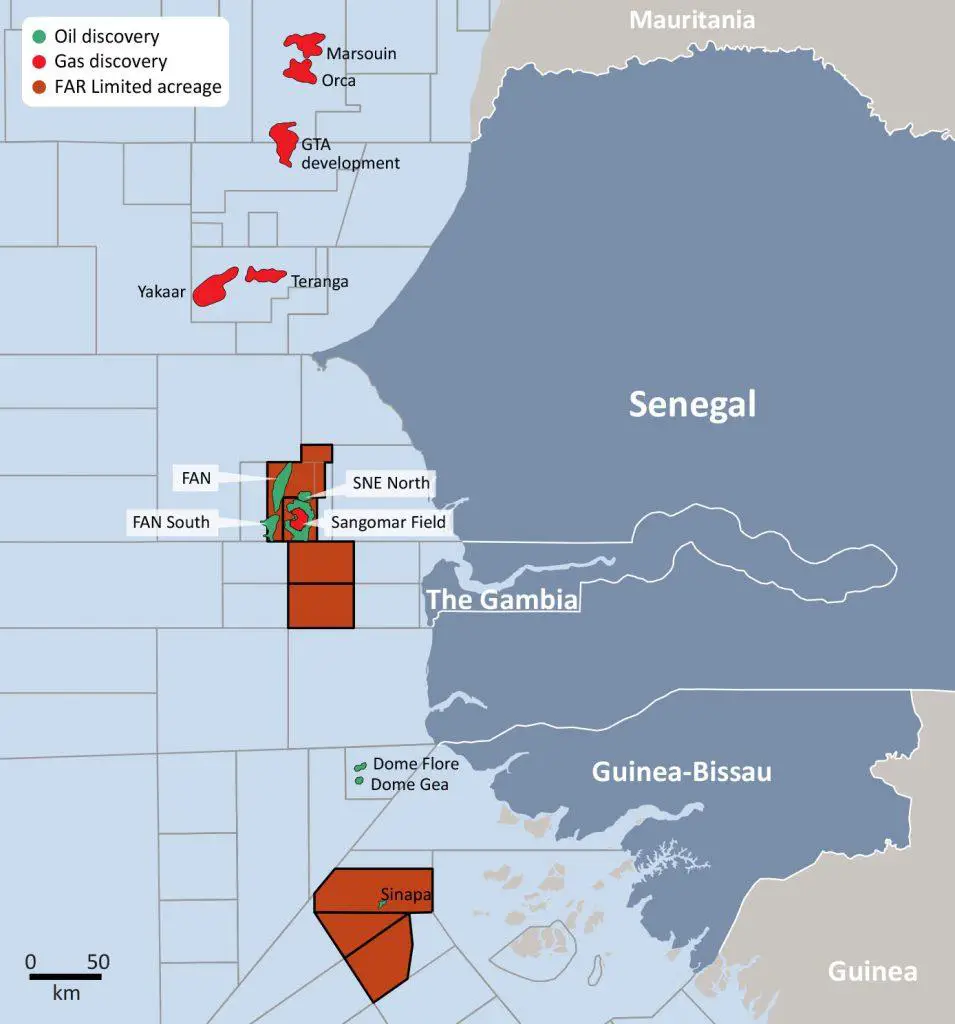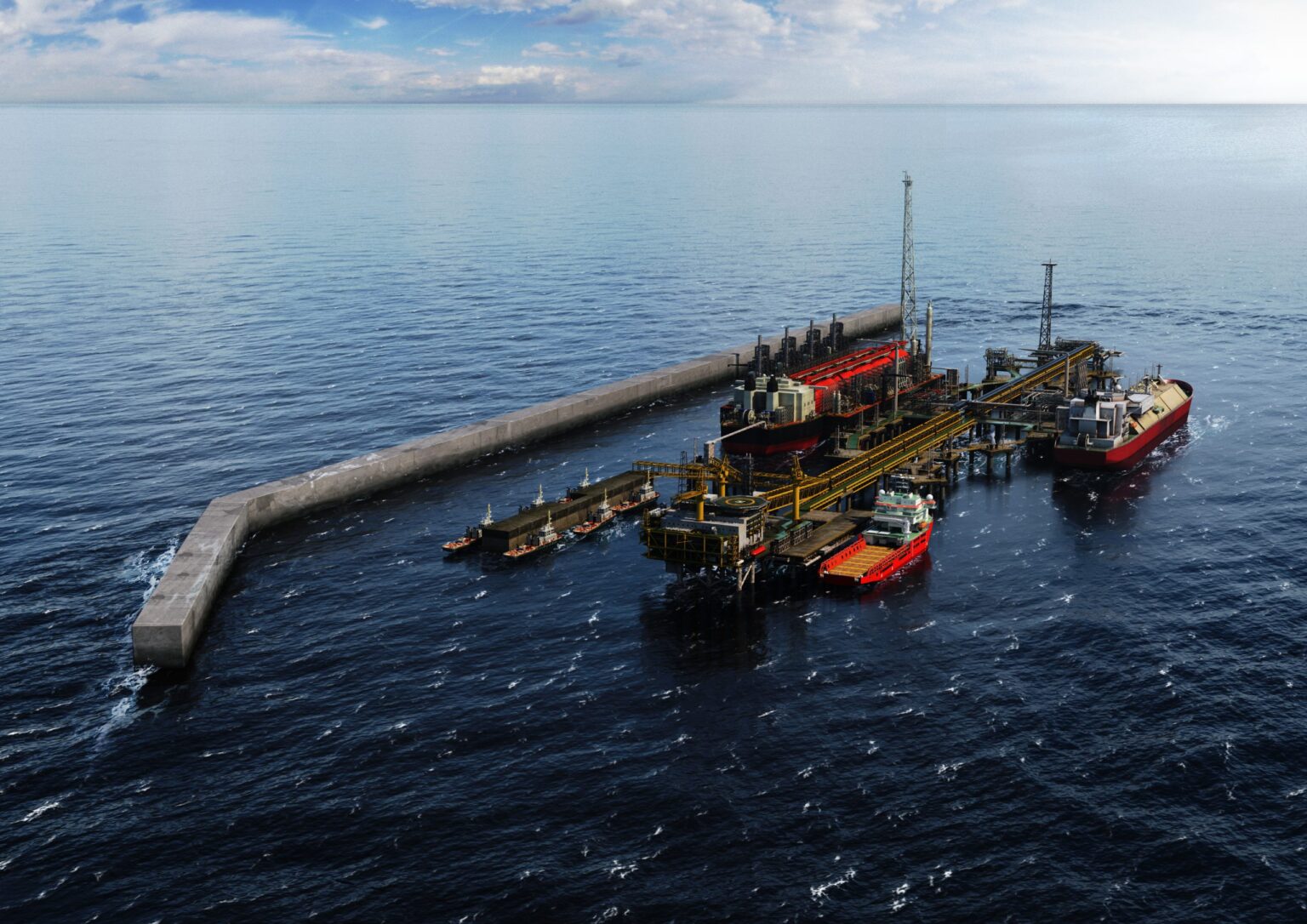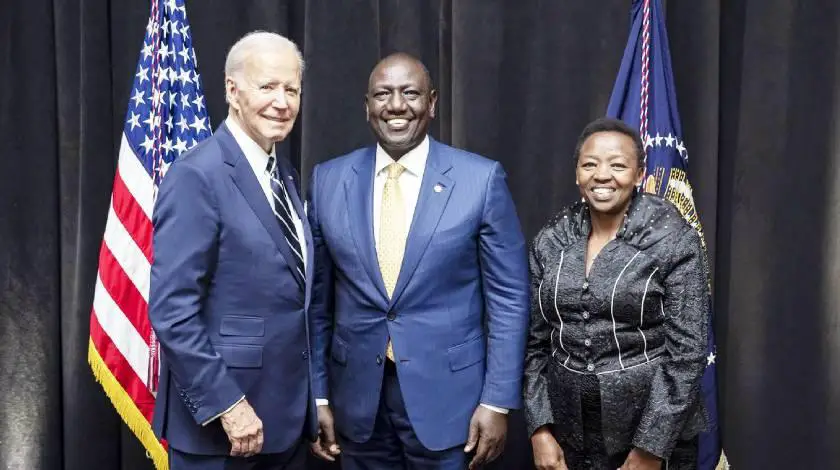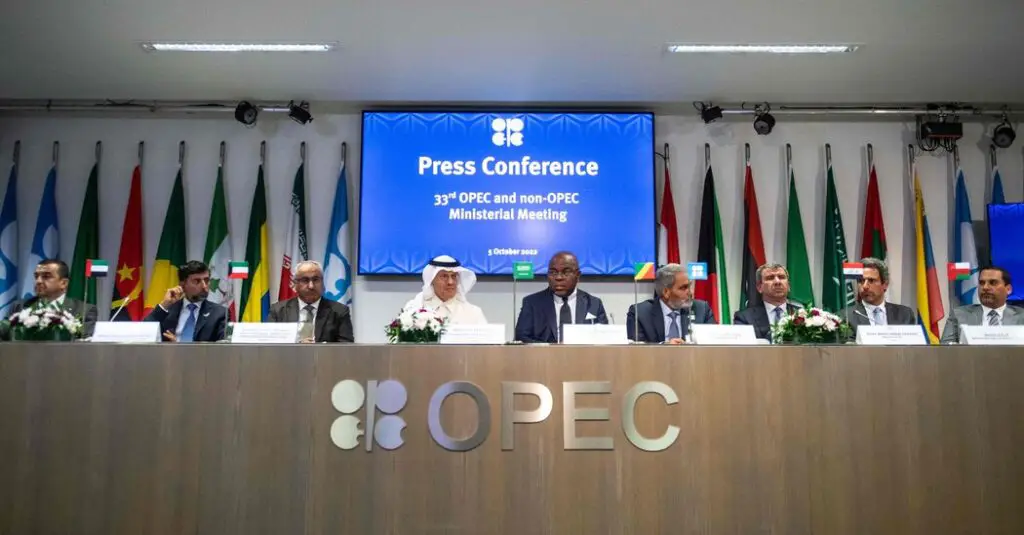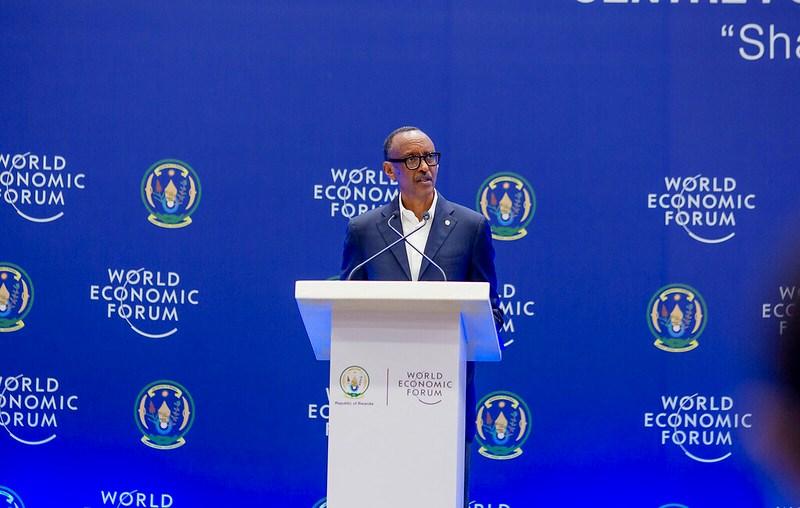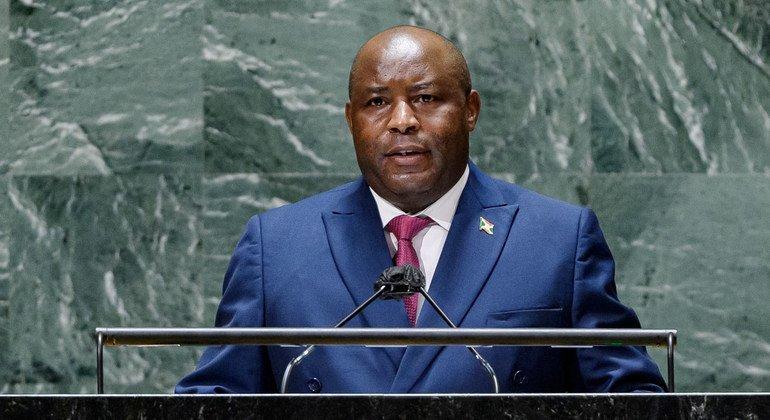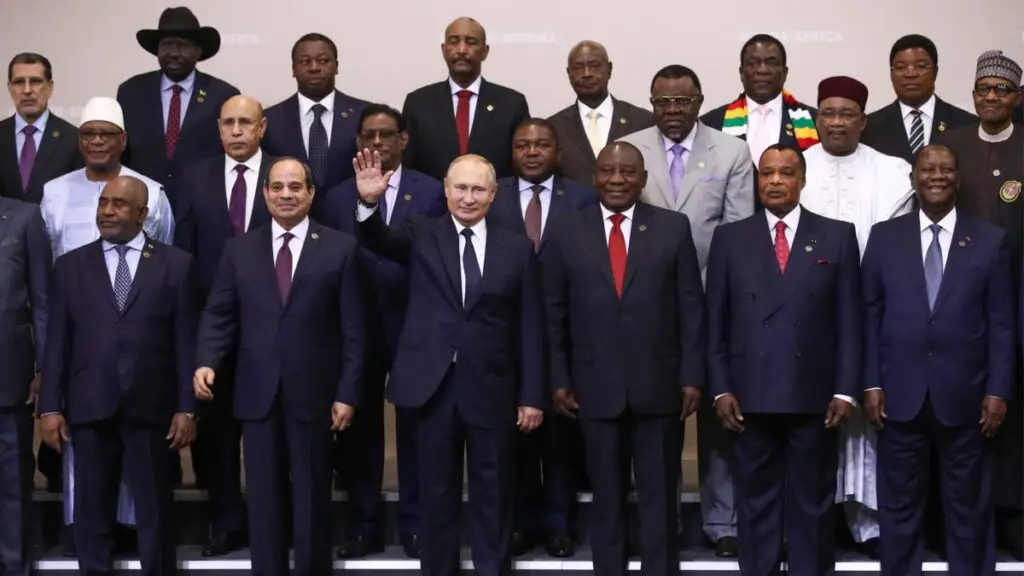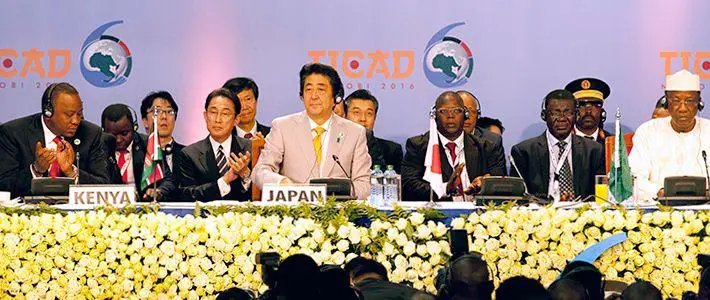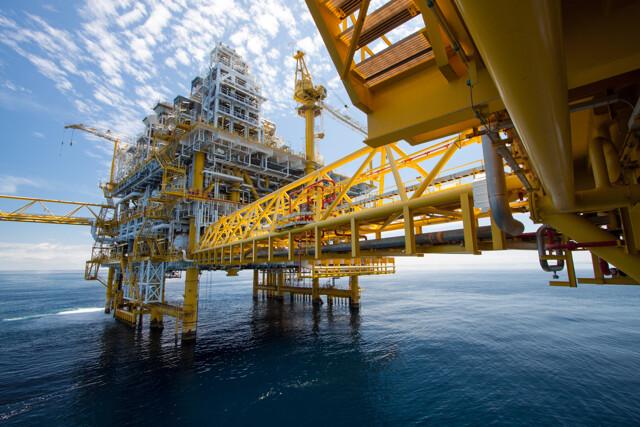- Africa’s BPO industry enters AI era with 40% of tasks at risk by 2030
- Trump tariffs sting set to ruffle several economies in Africa
- Africa Energy Bank secures key backing from Nigeria, Angola and Ghana
- AIM Congress 2025 gets a boost as International Development Bank signs on as gold sponsor
- African energy: Opportunities and challenges presented by Russia’s investments
- Africa’s smart farming push—a revolution or a mirage?
- BRICS summit in Brazil to focus on global governance reform
- Dedollarization: BRICS take on Trump and mighty dollar
Author: june njoroge
Oil and gas exports from Senegal are scheduled to begin in earnest in 2023, spelling a new dawn for the economy of the West African country, popularly renowned as the ‘Gateway to Africa,’ located in the western most point of the continent. The Grand Tortue Ahmeyim (GTA) LNG gas project, will be a game changer for the country, radically transforming its economy, which is projected to register robust growth in 2023, outshining other countries in the Sub-Saharan Africa. According to the recent World Economic Outlook forecast by the International Monetary Fund (IMF); Senegal’s economy will grow by 8.1 per cent in 2023, against the projected Sub-Saharan African growth of 3.7 percent.
In reiteration, the Africa Economic Outlook (AEO) published by the Africa Development Bank (AfDB), indicates that Senegal’s economy has decelerated in 2022 to 4.6 percent, but is estimated to accelerate to 8.2 percent, due to public and private investments …
Wind power is quickly gaining ground in Africa and many African countries are exploring this energy source to meet a fraction of their energy needs. Both onshore and offshore wind power is capable of delivering lower-cost power, as opposed to fossil fuels. A recent report commissioned by the International Finance Corporation (IFC), on ‘Wind Energy; Joining Forces for an African Lift-Off,’ indicated that Africa has 59,000 GW of technical onshore and offshore wind potential, which is enough to meet the continent’s energy demand 250 times over.
The Global Wind Energy Council (GWEC) notes that Africa is only using 0.01 per cent, of the 59,000 GW. In late 2021, GWEC, with support from numerous entities such as International Energy Agency (IEA), the International Renewable Energy Agency (IRENA), IEA, IFC; launched Africa Wind Power (AWP); a regional body representing the wind industry, with a goal to scale up and accelerate wind projects …
Activists and agriculture lobbyist have already protested the move by the government to lift the 10-year ban on GM foods. A joint statement signed by Greenpeace Africa and lobbyist groups argued that, “food security is not just about the amount of food, but the quality and safety. Our cultural and indigenous foods have proved to be safer, with diverse nutrients and with less harmful chemical inputs.”
Lobbyists insist that public participation could have taken place, prior to lifting the ban; and are championing for its reinstatement. Furthermore, they are advocating for an inclusive participatory process to be instituted or a taskforce onboarded, to investigate long-term and sustainable solutions to attain food security.
The move has elicited divergent views across the region. Tanzania is firmly opposed to the use of biotechnology in food production, and considering its proximity to Kenya, has upgraded its vigilance to ensure GM food or cash crops …
African countries will be largely impacted by the decision by the global cartel of oil producing countries to cut oil production given that only 14 out of 54 countries in Sub-Sahara Africa produce oil, which accounts for the lion’s share of their annual export earnings.
Many African countries have to import refined oil and rely on oil products in power generation. A hike in oil prices will boost economies of oil producing countries, by gaining foreign exchange earnings to carry out development projects such as Nigeria, Angola, Gabon, Libya, Cameroon, and Congo among others.
Consequently, this will create more job opportunities and greatly aid in poverty alleviation. In addition, the revenues could be redirected to other sectors that make significant contributions to the respective economies. By example, in countries like Cameroon, Gabon and Congo, internet infrastructure and technology could largely benefit from re-investing.…
Albeit landlocked, Rwanda’s economy has been growing exponentially but was impeded in 2020, by the Covid-19 pandemic and further exacerbated by the Russian-Ukraine war, which has been ongoing since February 2022.
Currently, the country’s debt-to-GDP ratio is at 74.8 per cent.
Rwanda is among the countries in the Great Lakes region of East–Central Africa, sandwiched between Uganda, the Democratic Republic of the Congo (DRC), Burundi, and Tanzania. The rate of economic progress registered hitherto, has led the international community to call Rwanda an ‘emerging Asian tiger.’
This economic rehabilitation and prosperity, has been especially spearheaded by the country’s long-standing president Paul Kagame, who in 2018 was named ‘African of the Year’ by Forbes Magazine. He has on several occasions since his ascension to power in 2000, expressed his desire to transform Rwanda into the ‘Singapore of Africa,’ a stable gateway of trade for the entire continent.…
Burundi formulated the National Development Plan (NDP) 2018-2027, in order to provide a socio-economic diagnosis of the country to structurally transform the Burundian economy for robust, sustainable, resilient, inclusive growth, creating decent jobs for all and leading to improved social welfare.
By the same token, the National Peacebuilding Program was developed in 2020 to operationalize the NDP. This program serves as a reference for all intervention strategies and actions aimed at promoting economic growth, community recovery, reintegration and sustainable and inclusive resettlement in Burundi.
Late September marked the launch of an economic memorandum report of Burundi supported by the World Bank. This was aimed at identifying opportunities to accelerate economic growth. Prepared with perspective to the successive external shocks of both the pandemic and the Russia-Ukraine conflict, some of the proposed solutions included increasing agricultural productivity, boosting trade, and managing natural capital, investing in infrastructure, restoring macroeconomic stability and strengthening …
The crisis has thrown the energy market into chaos, sending fossil fuel prices soaring. This has birthed the global demand for thermal coal, especially from the Asian and European markets; with most countries in both regions having been dependent of Russia, as the country is the world’s third largest supplier of thermal coal used chiefly for power generation. Coal plants that had been scheduled for closure in Europe have been reopened, to fill the deficit in mitigating fuel costs and generating electricity; as the alternative gas, is inarguably more expensive. With energy security under threat, climate policies and commitments have taken a back seat. The EU recently declared that natural gas now qualifies for green investments.
The African coal market is projected to enjoy double its revenue for the next one year. The prevailing energy gap has created a window of opportunity for African coal producing nations. According to a …
Gabon has been exploring innovative ways to exchange debt and raise loans through carbon credits. During the 2022 Commonwealth Heads of Government Meeting (CHOGM) in Rwanda, Gabon’s Minister of Water, Forests, Sea, and Environment Lee White, noted that the country intended to exploit its forests in a sustainable manner to generate income.
The economy of Gabon has in the recent past been heavily dented, by both the Covid-19 pandemic and the Russian-Ukraine crisis. The latter resulted in the widening of the budget deficit from 2.1 per cent in 2020 to 3.4 per cent, whilst the former has caused inflationary pressures leading to a fiscal deficit marked by sharp drops in domestic revenue mobilization, exports and Foreign Direct Investment (FDI).
Despite ranking as the seventh-largest oil producer in the continent and a member of the Organization of the Petroleum Exporting Countries and allies (OPEC+), the West Coast country ranks as one …
East Africa has been at a crossroads in its quest to industrialize, grasping at diverse straws of foreign aid inflows towards the realization of this endeavour.
Countries in the region have been looking West and East to fulfil their respective national developmental goals and finally lift their nations out of poverty. However, partnerships with the latter have swiftly gained momentum, and in tandem Asian countries have been positively responding to this call, with most having been in the same position decades ago. These Asian countries have experienced a robust economic revolution fueled by rapid industrialization.
Ties between Asia and East Africa, were cemented during the 1955 Asian-African Bandung conference held in Indonesia, originating from a shared colonial past.
Just why have East African countries been looking more to the East for support?
There are numerous reasons such as the non-interference policy that comes with aid, the untapped market for African …
Renowned by some as ‘Africa’s melting pot’ and ‘Africa in miniature’ by others, Cameroon is inarguably one of the most diverse countries in the continent.
Perched at the crossroads of West and Central Africa, the country boasts not only a rich tapestry of indigenous cultures but also diverse flora and fauna. Its strategic position bordering the Atlantic Ocean to the southwest, serves as a natural gateway into the landlocked region of Central Africa.
Cameroon is one of the countries that make up the Congo Basin, which is home to the world’s second-largest tropical rainforest after the Amazon. The Basin is popularly known as the ‘lungs of Africa’ covering 268 million hectares in Central Africa; a lush region filled with beautiful canopies that is not only home to more than 10,000 species of tropical plants which cannot be found elsewhere in the world, but also to the world’s largest tropical peatland.…





